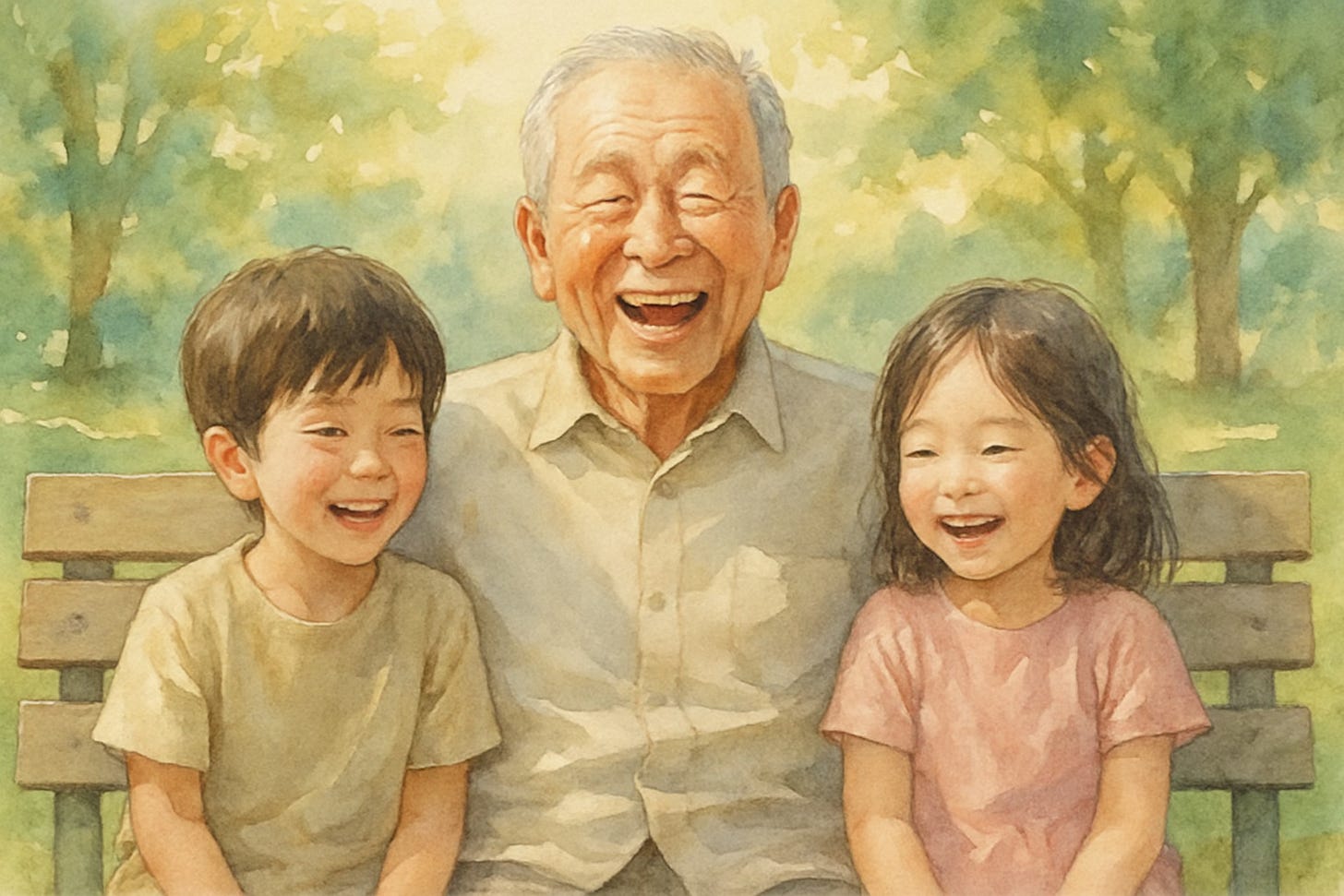God Has No Grandchildren
Why borrowed faith was never meant to be enough

I was reading a commentary on the Gospel of Matthew when I paused over a striking rebuke from John the Baptist. Seeing the Pharisees and Sadducees approach his baptism, he turned on them with unflinching words:
“You brood of vipers! Who warned you to flee from the coming wrath? Produce fruit in keeping with repentance. And do not think you can say to yourselves, ‘We have Abraham as our father.’ I tell you that out of these stones God can raise up children for Abraham.”
(Matthew 3:7–9)
John’s warning was clear: religious heritage does not exempt anyone from the call to genuine repentance. Being a physical descendant of Abraham, part of the covenant people, wasn’t enough. God could raise up children for Abraham from stones, he said. It was a startling image. The kingdom of heaven wasn’t inherited like a family heirloom; it had to be entered personally.
Of course, John wasn’t rejecting God’s covenant with Israel or denying the value of generational faith. His rebuke was directed at religious leaders who presumed that lineage alone guaranteed right standing with God. The deeper truth is this: whether we grow up in faith or come to it later, what matters is a living, responsive relationship with God, not mere proximity to religious identity.
That’s when I remembered a phrase I’d heard before:
“God has no grandchildren.”
It made me chuckle. I’m a third-generation Christian. My grandfather was a pastor. I was raised in the faith, and my childhood was full of Christian rhythms: Sunday school, memory verses, Vacation Bible School during summers, family devotions. I even remember participating in a school debate about creation versus evolution in sixth grade and defending creation (I cringe now at what I might have said—what does a 12-year-old really know?).
Looking back, I see those years as a gift. They gave me a foundation I didn’t fully understand at the time. I was immersed in Christian life. I knew the songs, the stories, the habits. I probably called myself a Christian because my family was. It was what we did. Church on Sundays. Prayers at meals. Family devotions in the evenings.
But then came my own moment of turning. In my final year of university, after four years in the same church and Bible study group, something finally clicked. I surrendered to the Lordship of Jesus. That’s the moment I mark as my becoming a Christian, not because I hadn’t known about Him before, but because, for the first time, I knew Him. He wasn’t just a name I’d grown up with; He became someone I trusted and followed. Someone I loved.
I’m grateful for that moment. Grateful that my faith didn’t remain borrowed or assumed. That it wasn’t something decided for me, even though I had grown up surrounded by it. I took the step freely. I accepted the invitation of Jesus and gave my life to Him, not out of obligation, but out of recognition.
Some of what I inherited I’ve kept with joy. Some I’ve wrestled with. Some I’ve had to let go. Faith that once felt like culture began to deepen into conviction. And that process, like most real transformations, was slow, honest, sometimes painful, and deeply filled with grace.
But the story doesn’t end there. About twenty years later, I encountered another turning point, this time quieter but no less profound. It wasn’t a dramatic crisis, but a season of questions. The answers I’d once relied on no longer satisfied. The frameworks I had learned, even some I had constructed myself, began to feel too small for the complexity of life, doubt, suffering, and mystery. My faith didn’t collapse, but it did get re-formed. Shaken, humbled, and reshaped.
That season didn’t undo my earlier decision. It deepened it. It moved me from simple faith to deep faith. Not because I became smarter or more certain, but because I became more honest. More rooted in grace than in answers. More lived-in than inherited.
So yes, God has no grandchildren. Each of us is invited to be a child of God. Not because of our lineage, not because of our pedigree or proximity to faith, but because of grace. And what a grace it is to be known, to be loved, to be called daughter.


